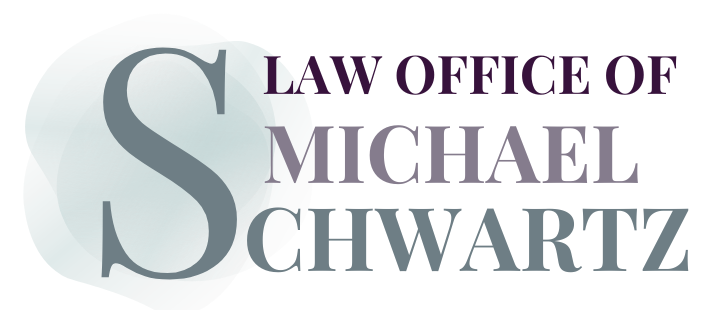What Are Credit Card Judgments? Your Complete Guide
Receiving a court summons for unpaid credit card debt can be overwhelming and confusing. Understanding credit card judgments and your options is crucial for protecting your financial future.
A credit card judgment is a court order that legally confirms you owe a debt to a creditor or debt collector after a successful lawsuit. This court order grants creditors powerful collection tools to recover the money owed, including wage garnishment, bank account levies, and property liens.
Credit card judgments can have a significant impact on your financial stability and quality of life. However, bankruptcy may offer a path forward to halt aggressive collection activities and provide debt relief. Bankruptcy attorney Michael Schwartz explains how credit card judgments work, their consequences, and how filing for bankruptcy can help you regain control of your finances.
How a Credit Card Judgment Happens
The path to a credit card judgment typically follows a predictable sequence of events that begins with missed payments and escalates through the legal system.
The Process Unfolds
- Delinquency and Default: The process begins when you fail to pay your credit card bills for an extended period, typically 90 to 180 days. Your account becomes delinquent, then transitions to default status.
- Charge-Off: The credit card company marks the debt as a loss for accounting purposes after approximately 180 days of non-payment. Despite this charge-off, you remain legally obligated to pay the debt.
- Lawsuit Filing: A debt collector or the original creditor files a lawsuit against you to collect the unpaid debt. You’ll receive a court summons requiring your response within a specific timeframe, usually 20 to 30 days.
- Judgment Entered: If you fail to respond to the lawsuit or lose the case in court, the judge issues a judgment confirming you owe the debt. This court order transforms an ordinary debt into a powerful legal tool for debt collection.
The judgment process moves quickly once initiated. Many consumers receive default judgments simply because they don’t respond to the court summons, often due to fear, confusion, or lack of legal knowledge.
Consequences of a Credit Card Judgment
Credit card judgments grant creditors significant power to collect debts through aggressive methods that can severely impact your daily life and financial stability.
Powerful Collection Tools
- Wage Garnishment: In other states, creditors can garnish a portion of your paycheck directly from your employer for credit card debt. In Pennsylvania, credit card debt is not one of the types of debts that can be garnished.
- Bank Levies: Creditors can freeze and seize money directly from your bank accounts. This means funds you need for rent, utilities, groceries, and other essential expenses can disappear without warning.
- Property Liens: A lien can be placed on your real estate, preventing you from selling or refinancing your home without first paying the debt. These liens can remain in place for years, effectively trapping you in your current financial situation.
Additional Financial Burdens
The financial impact extends beyond the original debt amount. Your total obligation increases over time to include attorney fees, court costs, and ongoing interest charges. These additional expenses can substantially inflate the debt, making it even more difficult to resolve.
Credit card judgments also become part of the public record, potentially affecting future employment opportunities, as many employers conduct background checks that reveal outstanding judgments.
Bankruptcy as a Solution
Filing for bankruptcy can provide immediate relief from credit card judgment enforcement and offer a path toward financial recovery. Bankruptcy triggers an automatic stay that immediately halts collection activities, including wage garnishment and bank account levies.
Two primary bankruptcy chapters help consumers dealing with credit card judgments: Chapter 7 and Chapter 13. Each offers distinct advantages depending on your financial situation and goals.
Filing for bankruptcy before a judgment is issued provides the best protection, as it can prevent creditors from placing liens on your property. However, bankruptcy can still provide significant relief even after a judgment has been entered, though the process may be more complex.
Chapter 7 Bankruptcy: A Fresh Start
Chapter 7 bankruptcy offers a complete discharge of unsecured debts, providing tremendous relief for individuals overwhelmed by credit card debt, personal loans, and medical bills.
Key Benefits
Chapter 7 allows you to eliminate most unsecured debts, freeing you from creditor collection practices. This bankruptcy chapter provides a genuine fresh start, allowing you to rebuild your financial life without the burden of overwhelming debt.
The process typically takes four to six months from filing to discharge. Once you receive your discharge, creditors cannot pursue collection activities for the eliminated debts, and any existing wage garnishments must stop.
Professional Guidance Essential
The bankruptcy court has significant powers to seize and sell assets during Chapter 7 proceedings. Before filing, it’s crucial to review your asset values and understand available bankruptcy exemptions that protect your property.
Chapter 13 Bankruptcy: Restructure and Rebuild
Chapter 13 bankruptcy helps reduce debt payments while allowing you to keep your assets, giving you control over your finances through a court-approved repayment plan.
Protecting Your Home
If your mortgage lender has threatened or initiated foreclosure proceedings, Chapter 13 bankruptcy can provide crucial protection. Filing stops foreclosure actions and allows you to create a payment plan for missed mortgage payments while resuming regular monthly payments.
By reducing payments on unsecured debts like credit cards and medical bills, Chapter 13 frees up income to address mortgage obligations, helping you keep your home.
Manageable Payment Plans
Chapter 13 bankruptcy establishes a three to five-year repayment plan based on your income and expenses. This structured approach reduces monthly payments for various debts while providing legal protection from creditor harassment and collection activities.
Take Control of Your Financial Future
Credit card judgments can feel overwhelming, but bankruptcy provides proven solutions for debt relief and financial recovery. Chapter 7 bankruptcy offers a complete discharge of unsecured debts, while Chapter 13 provides structured repayment plans that protect your assets and stop foreclosure.
Professional legal guidance ensures you understand your options and choose the best path forward. If your Chapter 13 plan follows bankruptcy rules and pays creditors the required amounts, the Trustee will recommend confirming your case. Upon completing your payments, the Judge will issue a Chapter 13 bankruptcy discharge.
Facing financial challenges? Skilled bankruptcy lawyer Michael Schwartz can help you determine if bankruptcy is the right solution for your situation. With convenient offices in Southampton, Havertown, and Perkasie, he assists clients across Bucks, Delaware, Montgomery, and Philadelphia Counties. Schedule your free consultation today at (215) 392-8783 and take the first step toward financial relief.


